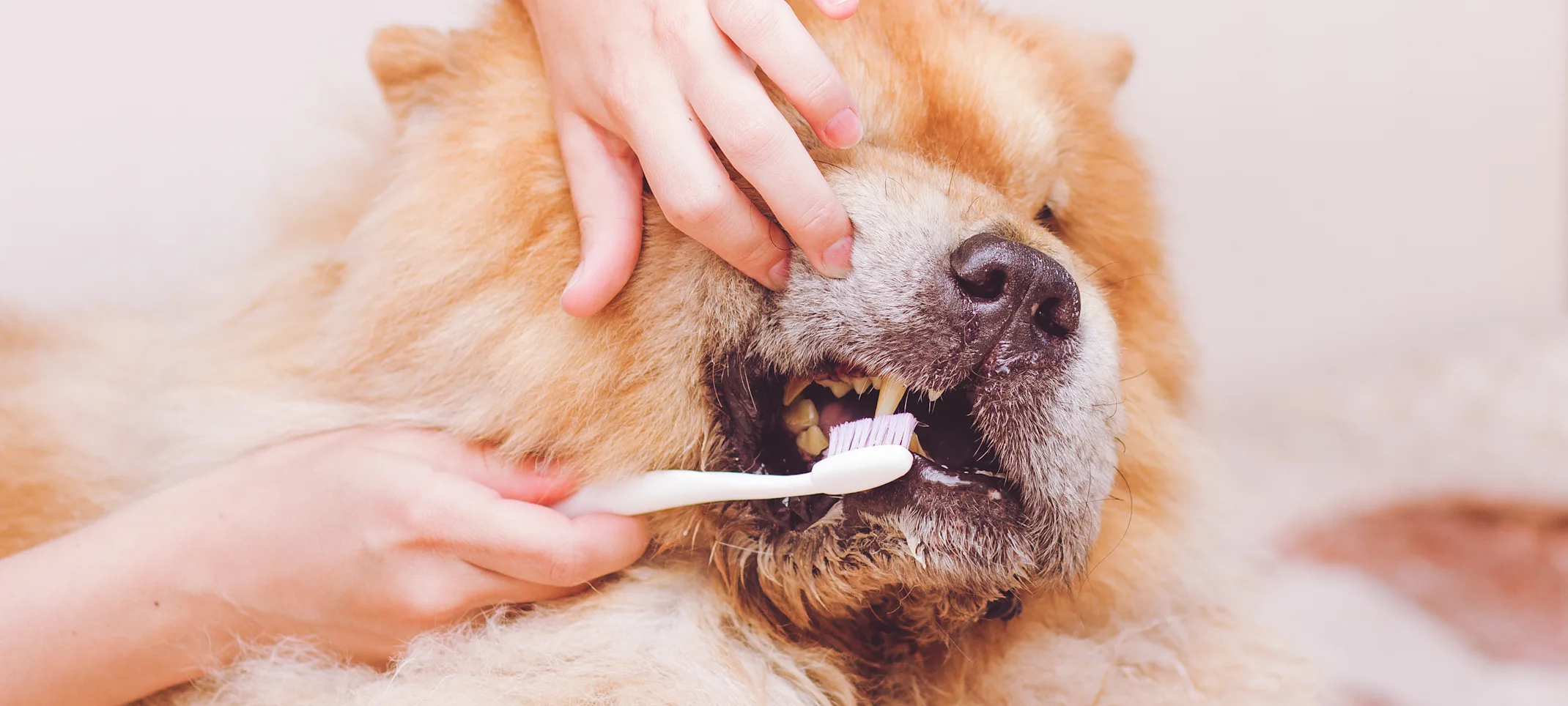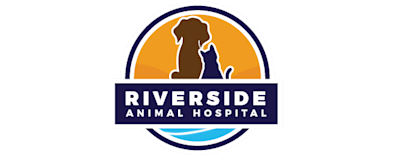Riverside Animal Hospital North
Dental Care
At Riverside Animal Hospital North, we are committed to our patients' dental health and implement the highest quality dental care. We take a comprehensive approach to dental care including dental health assessment, treatment, and prevention.

Imagine never brushing your teeth. How would your teeth look? How would your mouth feel? Studies show that 50% of all dogs and cats have some form of periodontal disease. That number jumps to 75% when you look at pets over age three. Left untreated, periodontal disease can cause infection, pain and tooth loss over time. It can also lead to microscopic changes in the heart, liver, and kidneys and can cause serious health problems for your pet.
Overview
Studies show that 50% of all dogs and cats have some form of periodontal disease. That number jumps to 80% in pets that are 3 years of age or older. If left untreated, periodontal disease can cause infection, pain, and tooth loss over time. It can also lead to serious health problems like microscopic changes in the heart, liver, and kidneys. Because of this, we recommend an annual veterinary dental healthcare examination for all pets.
Why do pets need dental care?
Many health problems start in the mouth. Plaque, tartar, periodontal disease, and infected teeth serve as a source of inflammation and infection for the rest of the body.
Dental disease is one of the most common problems that we see in dogs and cats. It can cause drooling, reluctance to eat, swelling, bad breath, redness of the gums, loose teeth and tooth discoloration.
Many health problems start in the mouth. Plaque, tartar, periodontal disease, and infected teeth serve as a source of inflammation and infection for the rest of the body. Dental disease is also a source of pain. There are many ways that dog and cat owners can help their veterinarian provide a healthy mouth for their pet. Our dental services at Riverside Animal Hospital North include teeth cleaning and polishing, tooth extractions and minor oral surgery.
Regular professional cleaning is important to maintaining your pet's health at any age. Dental cleanings must be performed under general anesthesia in order to properly and safely examine and clean the teeth. We use modern and safe ultrasonic equipment; each tooth is thoroughly cleaned above and below the gum line. Dental technicians polish the teeth to create a smooth, lustrous surface more resistant to plaque buildup.
When should I seek dental care for my pet?
Dental issues and dental related diseases can easily be prevented by visiting our veterinarians regularly for dental examinations and cleanings. We take a comprehensive approach to dental care including dental health assessment, treatment, and prevention.
How does it work?
Teeth Exams, Cleaning and Polishing
Dog and cat dental cleanings are very similar to human dental cleanings, except that we are required to use anesthesia to properly and safely examine and clean the teeth. After the cleaning, our veterinarians perform a thorough oral exam and check for signs of disease like gum loss, root exposure, or pockets around the root.
After the teeth are cleaned and polished, your veterinarian will perform a thorough oral exam and check each tooth for any signs of dental disease (gum loss, root exposure, pockets around the root). Extensive dental disease requires the tooth to be removed (extracted). Many teeth require oral surgery to safely remove each individual root. We have extensive training and experience to perform these procedures properly. Oral nerve blocks are performed and additional injectable pain medications are administered if teeth are extracted. Your pet will also be sent home with oral pain medication. Pets recover quickly following these procedures, and, once the gums have completely healed, they resume eating their regular dry kibble even when multiple teeth are extracted.
Tooth Extractions
We make every effort to save teeth that we feel have a chance to be successfully treated. In many circumstances, however, periodontal disease is so advanced that treatment without extraction is unsuccessful. We only extract teeth that in the doctor's opinion are beyond saving.
Minor Oral Surgery
Many teeth require oral surgery to safely remove each individual root. We have extensive training and experience to perform these procedures properly. Pain medications are administered in clinic and provided for in-home aftercare.
Dental Disease Prevention
Your pet's dental health is an important part of his or her overall health. Dental disease is the most common disease in dogs and cats in the United States. Dental health problems can lead to more serious conditions such as infections and heart or kidney disease. Many pets with untreated dental disease suffer from chronic pain and premature aging (often acting older than they should). Some symptoms which can indicate serious dental problems include bad breath, plaque build-up, gum irritation and redness, loose teeth, tooth discoloration and swelling in the jaw area.
The American Animal Hospital Association recommends annual oral examinations after the pet is a year old. Dental cleanings for adult dogs are performed under general anesthesia. In addition to regular exams and cleanings, there are some things you can and should do to help promote good dental health in your pet. Feeding your pet a hard, kibble-type pet food, providing appropriate chew toys and brushing his teeth are just a few ways to keep your pet's teeth healthy in between professional cleanings.
Dental disease can be easily prevented by visiting your veterinarian regularly for dental examinations and cleanings.
